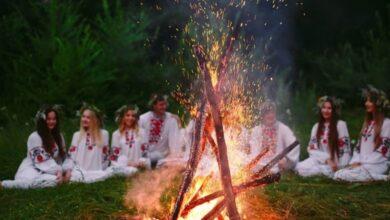November 17: holidays and events on this day

November 17 marks the International Day of Students and the Day of Students in Ukraine, the Day of Agricultural Workers of Ukraine, as well as the World Day of the Premature Child.
International Students’ Day and Student’s Day in Ukraine
This is a special day for students all over the world, because it is celebrated on this day. This date is a symbol of youth solidarity, the thirst for knowledge and the struggle for freedom, which has become historic for the student movement.
International Students’ Day was founded in 1941 in London as a symbol of student protest and memory of the tragedy that occurred in Nazi-occupied Slovakia in 1939. On October 28, 1939, during a protest in honor of the anniversary of the formation of the Slovak Republic, Nazi forces brutally dispersed students and teachers, many of them were arrested, and on November 17, nine student leaders were executed. Since then, this day has become a symbol of the struggle of young people for rights, freedom and education, and was later officially recognized as International Students’ Day.
In Ukraine, November 17 is also celebrated as Student’s Day, which is a symbol of the unity of student youth, their aspirations for self-realization, self-improvement and development. This day unites students of different universities, gives them the opportunity to feel their power and influence on society, and also reminds them of the importance of their voice.
Many universities hold thematic concerts, cultural and sports events, lectures and master classes. Student’s Day becomes an opportunity for informal meetings, festive events and entertainment programs.
Students often join social and charity projects, organize volunteer actions, help local communities or collect funds to support important initiatives.
Day of Agricultural Workers of Ukraine
This day is celebrated annually on the third Sunday of November. This holiday honors the work of farmers, who make every effort to provide the country with food, and is a kind of symbol of gratitude for their dedication. Agriculture is one of the most important sectors of the Ukrainian economy, which forms the economic and social well-being of the country.
The holiday was established as an official national holiday in 1993 to support and recognize the importance of agricultural work. This day became not only an opportunity to honor the village workers, but also a reminder of the importance of the development of agriculture for the entire country.
On this day, award ceremonies are held for the best agricultural workers, where they are recognized for their contribution to the development of the agricultural industry. Awards often include honorary degrees, commendations, and state awards.
In rural communities, festivals, concerts and folk festivities are held, which gather farmers, their families and villagers. This holiday brings people together and creates a sense of community and support.
Many cities host holiday fairs where farmers and producers can showcase and sell their wares, from vegetables and fruits to honey, meat and dairy products.
On this day, the results of the agricultural season are usually summed up, the achievements and difficulties of the agricultural sector are analyzed. It is also a time to discuss future plans and prospects for the industry.
Interesting facts
Ukraine is one of the world’s largest exporters of grain crops, sunflower oil, honey and many other products. Agriculture accounts for about 10% of the country’s GDP and provides a significant part of export revenues.
About 30% of the world’s chernozem reserves are concentrated in Ukraine. Black soil is one of the most fertile soils, which contributes to high yields, making Ukrainian agriculture competitive on the world stage.
Modern Ukrainian agriculture is actively introducing innovations, such as drones for field monitoring, precision farming systems, which allow to reduce the costs of fertilizers and water, as well as adapt processes to climate changes.
World Premature Day
This day draws attention to the problems of premature birth and their impact on the health and life of children and their families. This holiday is an important day to support premature babies and their families, who often face difficult challenges.
The World Day of the Premature Child was founded in 2009 by the European non-governmental organization EFCNI (European Foundation for the Care of Newborn Babies) in cooperation with organizations working to support premature babies. The purpose of this day is to raise awareness about preterm birth, improve the level of medical care for such children and create a support network for their families.
Purple is the symbol of this day, symbolizing hope, sensitivity and the special attention needed to support premature babies. Purple lighting is often used on this day to illuminate monuments, hospitals and other important buildings in various countries.
In many countries, information events, meetings with doctors and specialists are held on this day, which talk about the importance of caring for premature babies and the opportunities for parents to get help.
Campaigns are being organized to collect funds for the purchase of medical equipment and support centers for helping premature babies. Many organizations are working to improve the quality of medical services for such children.
Parents of children born prematurely face significant stress. It is important for them to have access to psychological help that helps them cope with their experiences and enables them to support their babies in the difficult process of development.
Interesting facts
Every tenth child in the world is born prematurely. This means that every year about 15 million babies are born prematurely, which can lead to serious health problems, because the organs of such babies have not yet had time to fully develop.
Premature babies are often underweight, have weak immune systems, and are at increased risk of developing diseases, including problems with breathing, vision, hearing, digestion, and neurological function.
Many famous people were born prematurely, including Albert Einstein, Isaac Newton, Victor Hugo, Mark Twain and Winston Churchill. This proves once again that premature birth does not limit opportunities for success in life.
Thanks to the development of neonatal medicine, many premature babies can grow up healthy and happy. Modern equipment and care methods make it possible to provide the necessary conditions for the normal development of even very premature babies.
An important aspect of care is the “skin-to-skin” method, or the “kangaroo method”, in which the child is placed on the parents’ chest. This helps to strengthen the emotional bond and support vital functions in the baby.
Historical events on this day
Washington became the capital of the USA. In 1800, the city of Washington officially became the capital of the United States of America. This status was determined after lengthy discussions and the construction of major government buildings, including the Capitol, which houses Congress, and the White House, the residence of the president. Since then, Washington has been the administrative, political and symbolic center of the United States.
Foundation of the university in Kharkiv. In 1804, a university was founded in Kharkiv, which today is called Kharkiv National University named after V. N. Karazin. This institution became the first classical university in Ukraine and one of the oldest in the territory of the then Russian Empire, opening up new opportunities for scientific development and education.
Dissolution of the Union of Communists. In 1852, the Prussian government decided to dissolve the Union of Communists, an organization led by Karl Marx. This organization united revolutionaries with socialist views advocating a change in the social system. After the dissolution of the Union, many of its members were persecuted, and Marx’s ideas continued to influence European society.
Opening of the Suez Canal. 1869 saw the opening of the Suez Canal, an important waterway connecting the Mediterranean Sea with the Red Sea. The canal shortened the distance between Europe and Asia, greatly facilitating trade and economic connections. This event was an important step in the development of global maritime navigation and international trade.
The first ship in the Panama Canal. In 1913, the first ship passed through the Panama Canal, which became a symbol of the completion of the large-scale construction project that connected the Pacific Ocean with the Atlantic Ocean. The Panama Canal has played a significant role in shortening sea transportation routes, making it one of the world’s most important strategic facilities.
Student protests in Prague. In 1939, thousands of students and teachers protested in Prague against Hitler’s occupation of Slovakia. Many of them were arrested, and some were executed. This event later became a symbol of the struggle for freedom and resistance to the occupation. In memory of these events, November 17 was recognized as Student’s Day, which is celebrated annually in Ukraine and other countries.
Commissioning of the Dashava-Kyiv gas pipeline. In 1948, the Dashava-Kyiv gas pipeline was completed and put into operation. Its diameter was 500 mm, and its length was 509 km. This gas pipeline has become an important element of the energy infrastructure of Ukraine, ensuring the supply of natural gas over long distances. This year is also considered the founding day of “Kyivtransgaz”.
The beginning of the production of artificial diamonds by De Beers. In 1959, the De Beers company in Johannesburg, South Africa, began the production of artificial diamonds. This step became important in the development of the jewelry industry, because artificial diamonds are cheaper and more environmentally friendly than natural diamonds.
The biggest meteor shower. In 1966, on the night of November 16-17, the largest meteor shower of the Leonid group was recorded, which was observed between the eastern part of the USSR and the western part of North America. The Leonids appear regularly every 33 years, creating a fascinating spectacle in the sky.
The beginning of negotiations between the USSR and the USA on the limitation of strategic weapons. In 1969, negotiations between the Soviet Union and the United States of America regarding the limitation of strategic arms began in Helsinki. This was the first step towards controlling the arms race and establishing security at the global level.
Landing of “Moon rover-1” on the moon. In 1970, the Soviet space station “Luna-17” made a soft landing on the surface of the moon in the Sea of Rains area, after which it sent the “Moon rover-1” on a trip to the moon. It was the first device that traveled on the surface of the Earth’s satellite, conducting research and sending data to Earth.
Military coup in Northern Ireland. In 1971, a military coup took place in Northern Ireland, which led to significant changes in the political situation of the region and a surge of conflicts.
The Velvet Revolution in Slovakia. In 1989, the Czech police broke up a student demonstration in Prague, timed to the 50th anniversary of protests against the Nazi occupation. This event actually marked the beginning of the Velvet Revolution, which led to the overthrow of the communist regime in Slovakia.
Election of Benazir Bhutto as Prime Minister of Pakistan. In 1989, Benazir Bhutto became the Prime Minister of Pakistan, becoming the first woman in this position in a Muslim country. Her election symbolized a new era in Pakistani politics and became an important achievement in the struggle for women’s rights.
Cancellation of the Declaration on the sovereignty of Crimea. In 1994, the Verkhovna Rada of Ukraine adopted a resolution on the cancellation of the Declaration on the sovereignty of Crimea. This decision had a significant impact on the political status of Crimea as part of Ukraine.
Ukraine’s renunciation of nuclear status. In 2000, the ex-president of Ukraine, Leonid Kuchma, at a meeting with students of the Institute of International Relations of Taras Shevchenko Kyiv National University, stated that Ukraine would never be a nuclear state. This statement confirmed Ukraine’s decision to remain a nuclear-free country after the collapse of the USSR and the signing of the Budapest Memorandum.





